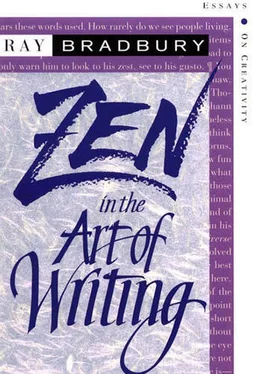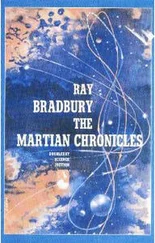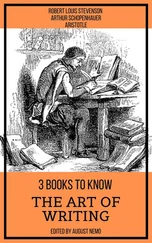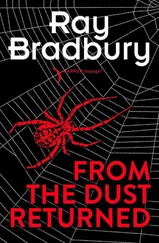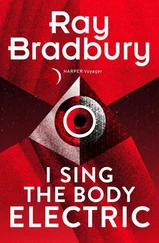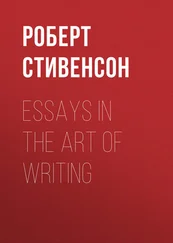Ray Bradbury - Zen in the Art of Writing
Здесь есть возможность читать онлайн «Ray Bradbury - Zen in the Art of Writing» весь текст электронной книги совершенно бесплатно (целиком полную версию без сокращений). В некоторых случаях можно слушать аудио, скачать через торрент в формате fb2 и присутствует краткое содержание. Жанр: Биографии и Мемуары, на английском языке. Описание произведения, (предисловие) а так же отзывы посетителей доступны на портале библиотеки ЛибКат.
- Название:Zen in the Art of Writing
- Автор:
- Жанр:
- Год:неизвестен
- ISBN:нет данных
- Рейтинг книги:4 / 5. Голосов: 1
-
Избранное:Добавить в избранное
- Отзывы:
-
Ваша оценка:
- 80
- 1
- 2
- 3
- 4
- 5
Zen in the Art of Writing: краткое содержание, описание и аннотация
Предлагаем к чтению аннотацию, описание, краткое содержание или предисловие (зависит от того, что написал сам автор книги «Zen in the Art of Writing»). Если вы не нашли необходимую информацию о книге — напишите в комментариях, мы постараемся отыскать её.
Zen in the Art of Writing — читать онлайн бесплатно полную книгу (весь текст) целиком
Ниже представлен текст книги, разбитый по страницам. Система сохранения места последней прочитанной страницы, позволяет с удобством читать онлайн бесплатно книгу «Zen in the Art of Writing», без необходимости каждый раз заново искать на чём Вы остановились. Поставьте закладку, и сможете в любой момент перейти на страницу, на которой закончили чтение.
Интервал:
Закладка:
I decided that was the greatest idea I had ever heard. I went to see Mr. Electrico the next day, with the excuse that a nickel magic trick I had purchased from him wasn't in working order. He fixed it, and toured me around the tents, shouting at each, "Clean up your language," before we entered to meet the dwarfs, acrobats, fat women, and Illustrated Men waiting there.
We walked down to sit by Lake Michigan where Mr. Electrico spoke his small philosophies and I talked my big ones. Why he put up with me, I'll never know. But he listened, or it seemed he listened, maybe because he was far from home, maybe because he had a son somewhere in the world, or had no son at all and wanted one. Anyway he was a defrocked Presbyterian minister, he said, and lived down in Cairo, Illinois, and I could write him there, any time I wished.
Finally he gave me some special news.
"We've met before," he said. "You were my best friend in France in 1918, and you died in my arms in the battle of the Ardennes forest that year. And here you are, born again, in a new body, with a new name. Welcome back!"
I staggered away from that encounter with Mr. Electrico wonderfully uplifted by two gifts: the gift of having lived once before (and of being told about it)… and the gift of trying somehow to live forever.
A few weeks later I started writing my first short stories about the planet Mars. From that time to this, I have never stopped. God bless Mr. Electrico, the catalyst, wherever he is.
If I consider every aspect of all the above, my beginnings almost inevitably had to be in the attic. From the time I was twelve until I was twenty-two or -three, I wrote stories long after midnightunconventional stories of ghosts and haunts and things in jars that I had seen in sour armpit carnivals, of friends lost to the tides in lakes, and of consorts of three in the morning, those souls who had to fly in the dark in order not to be shot in the sun.
It took me many years to write myself down out of the attic, where I had to make do with my own eventual mortality (a teenager's preoccupation), make it to the living room, then out to the lawn and sunlight where the dandelions had come up, ready for wine.
Getting out on the front lawn with my Fourth of July relatives gave me not only my Green Town, Illinois, stories, it also shoved me off toward Mars, following Edgar Rice Burroughs's and John Carter's advice, taking my childhood luggage, my uncles, aunts, my mom, dad, and brother with me. When I arrived on Mars I found them, in fact, waiting for me, or Martians who looked like them, pretending me into a grave. The Green Town stories that found their way into an accidental novel titled Dandelion Wine and the Red Planet stories that blundered into another accidental novel called The Martian Chronicles were written, alternately, during the same years that I ran to the rainbarrel outside my grandparents' house to dip out all the memories, the myths, the word-associations of other years.
Along the way, I also re-created my relatives as vampires who inhabited a town similar to the one in Dandelion Wine, dark first cousin to the town on Mars where the Third Expedition expired. So, I had my life three ways, as town explorer, space traveler, and wanderer with Count Dracula's American cousins.
I realize I haven't talked half enough, as yet, about one variety of creature you will find stalking this collection, rising here in nightmares to founder there in loneliness and despair: dinosaurs. From the time I was seventeen until I was thirty-two, I wrote some half-dozen dinosaur stories.
One night when my wife and I were walking along the beach in Venice, California, where we lived in a thirty-dollar-a-month newly weds' apartment, we came upon the bones of the Venice Pier and the struts, tracks, and ties of the ancient roller-coaster collapsed on the sand and being eaten by the sea.
"What's that dinosaur doing lying here on the beach?" I said.
My wife, very wisely, had no answer.
The answer came the next night when, summoned from sleep by a voice calling, I rose up, listened, and heard the lonely voice of the Santa Monica bay fog horn blowing over and over and over again.
Of course! I thought. The dinosaur heard that lighthouse fog horn blowing, thought it was another dinosaur arisen from the deep past, came swimming in for a loving confrontation, discovered it was only a fog horn, and died of a broken heart there on the shore.
I leaped from bed, wrote the story, and sent it to the Saturday Evening Post that week, where it appeared soon after under the title "The Beast from 20,000 Fathoms." That story, titled "The Fog Horn," became a film two years later.
The story was read by John Huston in 1953, who promptly called to ask if I would like to write the screenplay for his film Moby Dick . I accepted, and moved from one beast to the next.
Because of Moby Dick , I reexamined the life of Melville and Jules Verne, compared their mad captains in an essay written to reintroduce a new translation of 20,000 Leagues Beneath the Sea , which, read by the 1964 New York World's Fair people, put me in charge of conceptualizing the entire upper floor of the United States Pavilion.
Because of the Pavilion, the Disney organization hired me to help plan the dreams that went into Spaceship Earth, part of Epcot Center, a permanent world's fair, now building to open in 1982. In that one building, I have crammed a history of mankind, coming and going back and forth in time, then plunging into our wild future in space.
Including dinosaurs.
All of my activities, all of my growing, all of my new jobs and new loves, caused and created by that original primitive love of the beasts I saw when I was five and dearly cherished when I was twenty and twenty-nine and thirty.
Look around among my stories and you will probably find only one or two that actually happened to me. I have resisted, most of my life, being given assignments to go somewhere and "sponge up" the local color, the natives, the look and feel of the land. I learned long ago that I am not seeing directly, that my subconscious is doing most of the "sponging" and it will be years before any usable impressions surface.
As a young man I lived in a tenement in the Chicano section of Los Angeles. Most of my Latino stories were written years after I had moved from the tenement, with one terrifying, on-the-spot, exception. In late 1945, with World War II freshly over, a friend of mine asked me to accompany him to Mexico City in an old beat-up Ford V-8. I reminded him of the vow of poverty that circumstances had forced on me. He rebutted by calling me a coward, wondering why I didn't rev up my courage and send out three or four stories which I had hidden away. Reason for the hiding: the stories had been rejected once or twice by various magazines. Pummeled by my friend, I dusted the stories off and mailed them out, under the pseudonym William Elliott. Why the pseudonym? Because I feared that some Manhattan editors might have seen the name Bradbury on the covers of Weird Tales and would be prejudiced against this "pulp" writer.
I mailed off three short stories to three different magazines, in the second week of August 1945. On August 20,1 sold one story to Charm, on August 21, I sold a story to Mademoiselle , and on August 22, my twenty-fifth birthday, I sold a story to Collier's . The total monies amounted to $1,000, which would be like having $10,000 arrive in the mail today.
I was rich. Or so close to it I was dumbfounded. It was a turning point in my life, of course, and I hastened to write to the editors of those three magazines confessing my true name.
All three stories were listed in The Best American Short Stories of 1946 by Martha Foley, and one of them was published in Herschel Brickell's O. Henry Memorial Award Prize Stories the following year.
Читать дальшеИнтервал:
Закладка:
Похожие книги на «Zen in the Art of Writing»
Представляем Вашему вниманию похожие книги на «Zen in the Art of Writing» списком для выбора. Мы отобрали схожую по названию и смыслу литературу в надежде предоставить читателям больше вариантов отыскать новые, интересные, ещё непрочитанные произведения.
Обсуждение, отзывы о книге «Zen in the Art of Writing» и просто собственные мнения читателей. Оставьте ваши комментарии, напишите, что Вы думаете о произведении, его смысле или главных героях. Укажите что конкретно понравилось, а что нет, и почему Вы так считаете.
